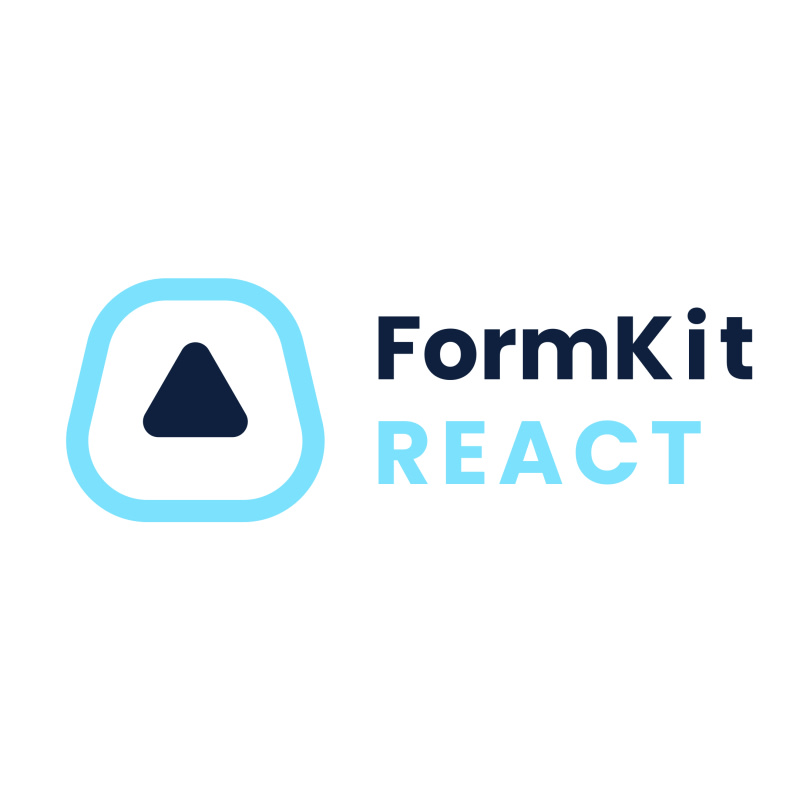FormKit is a flexible and powerful React form handling component that simplifies form management in React applications. It provides an intuitive API for handling form submissions, data management, and server interactions.
- 🚀 Easy form state management
- 📡 Built-in API integration
- ⚡ Custom fetch support
- 🔄 Automatic form data handling
- 🎯 TypeScript support
- 🎨 Flexible child component rendering
- 🔒 Automatic loading state management
- 🔌 Third-party component integration
npm install formkit-react
yarn add formkit-react
import { FormKit } from "formkit-react";
interface LoginForm {
email: string;
password: string;
}
function LoginComponent() {
return (
<FormKit<LoginForm>
url="/api/login"
onSuccess={(response) => console.log("Login successful:", response)}
onError={(error) => console.error("Login failed:", error)}
>
<input name="email" type="email" placeholder="Email" />
<input name="password" type="password" placeholder="Password" />
</FormKit>
);
}| Prop | Type | Description |
|---|---|---|
url |
string |
API endpoint for form submission |
action |
"POST" | "PUT" | "DELETE" | "PATCH" |
HTTP method for the request (default: "POST") |
onSubmit |
(data: T) => void |
Callback before form submission |
onSuccess |
(response: any) => void |
Callback on successful submission |
onError |
(error: any) => void |
Callback on submission error |
initalData |
T & Record<string,any> |
Initial form data |
customFetch |
(data: T) => Promise<any> |
Custom fetch function |
submitText |
string |
Text for submit button (default: "Submit") |
loadingText |
string |
Text while submitting (default: "Submitting...") |
defaultSubmitBtn |
boolean |
Show/hide default submit button (default: true) |
FormKit provides a useFormKit hook to manage form state and interactions programmatically.
import { useFormKit } from "formkit-react";
interface ProfileForm {
username: string;
bio: string;
}
function ProfileFormComponent() {
const { isLoading, error, reset } = useFormKit();
return (
<form>
<button type="button" onClick={() => reset()}>Reset Form</button>
<button type="submit" disabled={isLoading}>
{isLoading ? "Updating..." : "Update Profile"}
</button>
{error && <p className="error">{String(error)}</p>}
</form>
);
}| Return Value | Type | Description |
|---|---|---|
isLoading |
boolean |
Indicates if the form is being submitted |
error |
unknown |
Error object if submission fails |
reset |
(params?: any) => void |
Function to reset the form state |
FormKit provides a FormKitController component that makes it easy to integrate third-party form components. This controller handles the value management and data synchronization with the main form.
import { FormKit } from "formkit-react";
import { FormKitController } from "formkit-react/controller";
import DatePicker from "react-third-party-datepicker";
import Select from "react-third-party-select";
interface MyFormData {
date: Date;
options: { value: string; label: string }[];
}
function MyForm() {
return (
<FormKit<MyFormData>
url="/api/submit">
{/* DatePicker Integration */}
<FormKitController
name="date"
render={({ value, onChange }) => (
<DatePicker selected={value} onChange={onChange} />
)}
/>
{/* React-Select Integration */}
<FormKitController
name="options"
render={({ value, onChange }) => (
<Select
value={value}
onChange={onChange}
options={[
{ value: "option1", label: "Option 1" },
{ value: "option2", label: "Option 2" },
]}
isMulti
/>
)}
/>
</FormKit>
);
}The FormKitController component accepts the following props:
interface ControllerProps<T = any> {
name: string; // Field name in the form data
render: (props: {
value: T;
onChange: (value: T) => void;
}) => React.ReactElement;
}You can integrate any third-party component that accepts value and onChange props:
// Example with a custom Rich Text Editor
<FormKitController
name="content"
render={({ value, onChange }) => (
<RichTextEditor
value={value}
onChange={onChange}
toolbar={["bold", "italic"]}
/>
)}
/>The controller is fully typed and supports generic types:
interface EditorValue {
content: string;
format: "html" | "markdown";
}
<FormKitController<EditorValue>
name="editor"
render={({ value, onChange }) => (
<Editor
value={value.content}
format={value.format}
onChange={(content) => onChange({ content, format: "html" })}
/>
)}
/>;interface UserForm {
username: string;
email: string;
}
function UserRegistration() {
const handleCustomFetch = async (data: UserForm) => {
// Example of custom API integration
const response = await fetch("https://api.example.com/users", {
method: "POST",
headers: {
"Content-Type": "application/json",
Authorization: `Bearer ${localStorage.getItem("token")}`,
},
body: JSON.stringify(data),
});
if (!response.ok) {
throw new Error("Registration failed");
}
return response.json();
};
return (
<FormKit<UserForm>
customFetch={handleCustomFetch}
onSuccess={(response) => console.log("Success:", response)}
onError={(error) => console.error("Error:", error)}
>
<input name="username" type="text" placeholder="Username" />
<input name="email" type="email" placeholder="Email" />
<button type="submit">Register</button>
</FormKit>
);
}interface ProfileForm {
username: string;
bio: string;
}
function ProfileEditor() {
const initialData: ProfileForm = {
username: "johndoe",
bio: "Hello world!",
};
return (
<FormKit<ProfileForm> url="/api/profile" action="PATCH" initalData={initialData}>
<input name="username" type="text" />
<textarea name="bio" />
</FormKit>
);
}FormKit is written in TypeScript and provides full type safety. You can specify the form data type using generics:
interface MyFormData {
name: string;
email: string;
age: number;
}
<FormKit<MyFormData>
url="/api/submit"
onSubmit={(data) => {
// data is typed as MyFormData
console.log(data.name); // TypeScript knows this exists
}}
>
{/* form fields */}
</FormKit>;FormKit provides comprehensive error handling through the onError prop:
<FormKit
url="/api/submit"
onError={(error) => {
if (error.message === "Network response was not ok") {
// Handle network errors
}
// Handle other errors
}}
>
{/* form fields */}
</FormKit>Contributions are welcome! Please feel free to submit a Pull Request.

